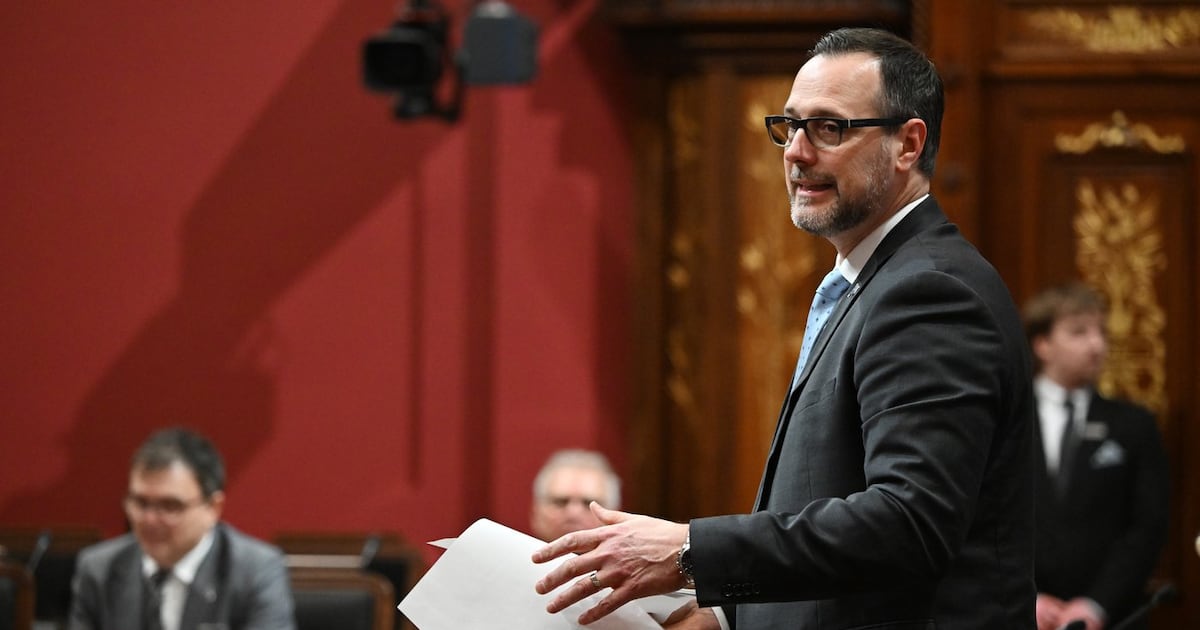Lifestyle
Quebec Moves to Ban Gender-Inclusive Language in Official Communications

Quebec has announced a ban on gender-inclusive language in all official state communications, a move that has sparked significant debate. The French-language Minister, Jean-François Roberge, plans to introduce legislation to this effect at the National Assembly on October 25, 2023. He argues that the introduction of newly emerging gender-neutral terms, often used by transgender and non-binary individuals, generates “incoherence” within Quebec’s official language framework.
The restrictions will prevent the use of gender-neutral pronouns such as “iel,” which serves a similar function to “they” in English. Roberge emphasized the need for adherence to traditional grammar rules, stating, “It is what it is, so we have to be sure that our grammar is applied and that new words are not incompatible with the grammar.”
Guidelines from Quebec’s Language Watchdog
The Office québécois de la langue française (OQLF) provides guidance on gender-neutral language, promoting methods that balance representation between genders. On its website, the OQLF states that gender-neutral language allows for inclusive communication, referring to individuals without specifying gender. Their preferred strategies include using doublets (e.g., “lecteurs” et “lectrices”) and neutral designations like “researchers” or “resource persons.”
Roberge noted that the introduction of these guidelines aims to reduce confusion, stating, “Without rules, everyone — in good faith, well-intentioned — are using words that are causing significant problems in terms of the French language.” The new rules will initially apply to external communications, impacting government ministries, municipalities, the education sector, including CEGEPs and universities, as well as the healthcare system.
As the legislation rolls out, there are concerns about its implications for students and educators using gender-neutral pronouns, as well as for patients in the healthcare system who have an X gender marker on their RAMQ card. Roberge mentioned that the government will be open to adjustments as necessary in these areas.
Context and Reactions
This policy follows recent criticism from the LGBTQ+ community regarding Quebec’s bathroom policies in schools and a contentious report from a gender identity committee. Roberge insists that the proposed rules are not intended to exclude any group. “I don’t want to exclude anybody. We are open-minded, we want people to be happy,” he stated.
He also noted that Quebec’s approach mirrors those of other countries, including France, Belgium, and Switzerland, which have implemented similar regulations regarding language use. The debate surrounding this legislation underscores ongoing discussions about language, identity, and inclusivity in Quebec’s cultural landscape.
As this situation continues to develop, the government’s next steps will be closely monitored by advocacy groups and the public alike, reflecting a broader conversation about language and representation in society.
-

 Education3 months ago
Education3 months agoBrandon University’s Failed $5 Million Project Sparks Oversight Review
-

 Science4 months ago
Science4 months agoMicrosoft Confirms U.S. Law Overrules Canadian Data Sovereignty
-

 Lifestyle3 months ago
Lifestyle3 months agoWinnipeg Celebrates Culinary Creativity During Le Burger Week 2025
-

 Health4 months ago
Health4 months agoMontreal’s Groupe Marcelle Leads Canadian Cosmetic Industry Growth
-

 Technology3 months ago
Technology3 months agoDragon Ball: Sparking! Zero Launching on Switch and Switch 2 This November
-

 Science4 months ago
Science4 months agoTech Innovator Amandipp Singh Transforms Hiring for Disabled
-

 Education3 months ago
Education3 months agoRed River College Launches New Programs to Address Industry Needs
-

 Technology4 months ago
Technology4 months agoGoogle Pixel 10 Pro Fold Specs Unveiled Ahead of Launch
-

 Business3 months ago
Business3 months agoRocket Lab Reports Strong Q2 2025 Revenue Growth and Future Plans
-

 Technology2 months ago
Technology2 months agoDiscord Faces Serious Security Breach Affecting Millions
-

 Education3 months ago
Education3 months agoAlberta Teachers’ Strike: Potential Impacts on Students and Families
-

 Science3 months ago
Science3 months agoChina’s Wukong Spacesuit Sets New Standard for AI in Space
-

 Education3 months ago
Education3 months agoNew SĆIȺNEW̱ SṮEȽIṮḴEȽ Elementary Opens in Langford for 2025/2026 Year
-

 Technology4 months ago
Technology4 months agoWorld of Warcraft Players Buzz Over 19-Quest Bee Challenge
-

 Business4 months ago
Business4 months agoNew Estimates Reveal ChatGPT-5 Energy Use Could Soar
-

 Business3 months ago
Business3 months agoDawson City Residents Rally Around Buy Canadian Movement
-

 Technology2 months ago
Technology2 months agoHuawei MatePad 12X Redefines Tablet Experience for Professionals
-

 Business3 months ago
Business3 months agoBNA Brewing to Open New Bowling Alley in Downtown Penticton
-

 Technology4 months ago
Technology4 months agoFuture Entertainment Launches DDoD with Gameplay Trailer Showcase
-

 Technology4 months ago
Technology4 months agoGlobal Launch of Ragnarok M: Classic Set for September 3, 2025
-

 Technology4 months ago
Technology4 months agoInnovative 140W GaN Travel Adapter Combines Power and Convenience
-

 Science4 months ago
Science4 months agoXi Labs Innovates with New AI Operating System Set for 2025 Launch
-

 Top Stories2 months ago
Top Stories2 months agoBlue Jays Shift José Berríos to Bullpen Ahead of Playoffs
-

 Technology4 months ago
Technology4 months agoNew IDR01 Smart Ring Offers Advanced Sports Tracking for $169










